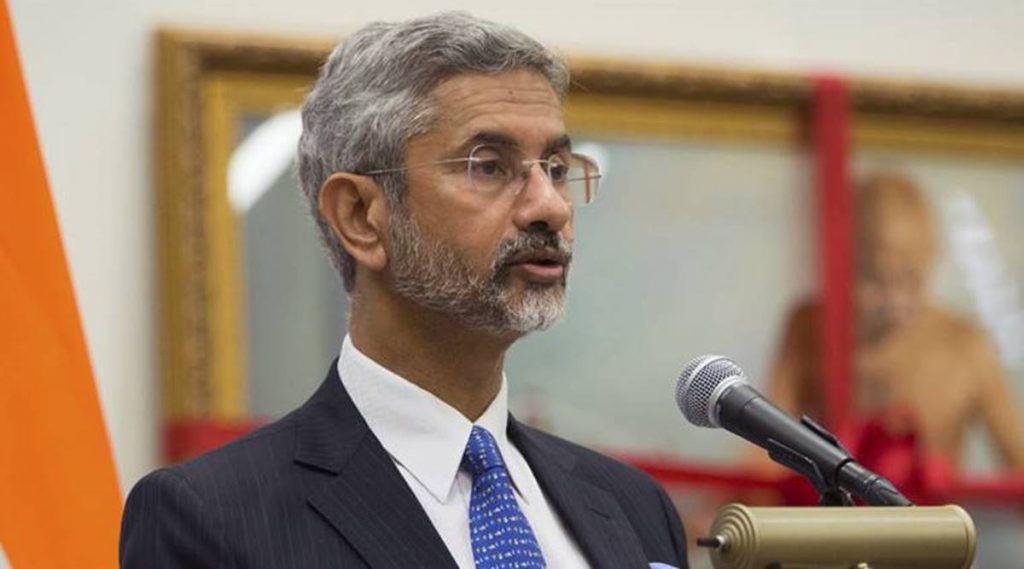NEW DELHI, Mar 30: India is in favour of United Nations led initiative for ceasefire in Afghanistan for lasting peace in the country, the external affairs minister S Jaishankar said.
The minister made the remarks in Dushanbe on Tuesday while speaking at the ministerial meeting of the Heart of Asia-Istanbul Process, a regional initiative of 15 countries, including China, Russia, Iran and Central Asian states, to find a lasting solution to the situation in Afghanistan. This was the first reaction from the Indian side to the UN-led initiative proposed by the Biden administration.
“India backs a regional process to be convened under the UN to achieve a political settlement and comprehensive ceasefire in Afghanistan as the situation in the war-torn country continues to be cause for grave concern,” Jaishankar said.
Addressing a gathering that included Pakistan’s foreign minister Shah Mahmood Qureshi, Jaishankar also said durable peace in Afghanistan required a “genuine ‘double peace’” or “peace within Afghanistan and peace around Afghanistan.” He said “It requires harmonising the interests of all, both within and around that country.”
India’s backing for a regional process on Afghanistan convened by the UN – first suggested by US secretary of state Antony Blinken in a letter sent to Afghan President Ashraf Ghani in February – came against the backdrop of worries in New Delhi that the country has been kept out of other processes such as Russia’s “extended troika”.
Jaishankar said: “India welcomes any move towards a genuine political settlement and a comprehensive and permanent ceasefire in Afghanistan. We appreciate the international recognition of foundational principles that will determine their contours.”
He added, “We support a regional process to be convened under the aegis of the United Nations. UN stewardship would help to take into account all relevant UN resolutions and improve the odds for a lasting outcome.”
In his letter, Blinken had outlined four elements as part of a high-level diplomatic effort involving regional countries and the UN to move quickly toward a settlement in Afghanistan. One of these four elements is a meeting to be convened by the UN of foreign ministers and envoys from Russia, China, Pakistan, Iran, India and the US to forge a unified approach on Afghanistan. The date for this meeting is yet to be finalised.
Jaishankar said the situation in Afghanistan continues to be a “cause for grave concern”, as violence and bloodshed are “daily realities and the conflict itself has shown little sign of abatement, whatever may be the promises.”
Noting that the past few months have witnessed an escalation in targeted killings of civil society, he said “2020 sadly marked a 45% increase in civilian casualties in Afghanistan over 2019”, while “2021 does not look very much better.”
“The continued involvement of foreign fighters in Afghanistan is particularly disturbing. Heart of Asia members and supporting countries should, therefore, make it a priority to press for an immediate reduction in violence leading to a permanent and comprehensive ceasefire,” he said.
According to a UN report issued last year, some 6,500 Pakistani fighters, including members of Lashkar-e-Taiba and Jaish-e-Mohammed, were active in Afghanistan. Indian and Afghan officials have for long accused Pakistan’s military establishment with deep links with elements of the Taliban, especially the Haqqani Network.
Jaishankar said ensuring Afghanistan was free of terrorism, violent extremism and drug and criminal syndicates was a “collective imperative.” He said “A stable, sovereign and peaceful Afghanistan is truly the basis for peace and progress in our region.”
India has supported all efforts to accelerate dialogue between the Afghan government and the Taliban, including intra-Afghan negotiations, and attended the inaugural virtual session of the Doha talks last year, he noted. “If the peace process is to be successful, then it is necessary to ensure that the negotiating parties continue to engage in good faith, with a serious commitment towards reaching a political solution,” he said.
At the same time, Jaishankar reiterated India’s interest in preserving the gains made over the past two decades in Afghanistan, including the democratic framework under which elections are held through universal suffrage, sovereignty in domestic and foreign policy and protection of the rights of women, children and minorities.
India is also committed to the development partnership with Afghanistan, which involves pledges of $3 billion, including more than 550 community development projects covering all 34 provinces, in order to ensure a self-sustaining nation.
As the lead country on trade, commerce and investment confidence-building measures under the Heart of Asia process, India will continue to work on improving Afghanistan’s connectivity through projects such as Chabahar port in Iran and dedicated air freight corridors between Indian and Afghan cities, Jaishankar said.
A lot of speculation regarding Jaishankar’s visit to Dushanbe has focused on whether he will hold a meeting with his Pakistani counterpart Qureshi. However, there was no official word from the Indian or Pakistani side about such a meeting.
Ahead of the ministerial meeting of the Heart of Asia process, Jaishankar held talks with Afghan President Ashraf Ghani on Monday night and shared India’s perspectives on the peace process. He also met his Iranian counterpart Javad Zarif and discussed bilateral cooperation, including for Chabahar port.
Jaishankar held a separate meeting with his Turkish counterpart Mevlut Cavusoglu and discussed “Afghanistan-related developments and our bilateral relations,” he said in a tweet.
(Manas Dasgupta)

